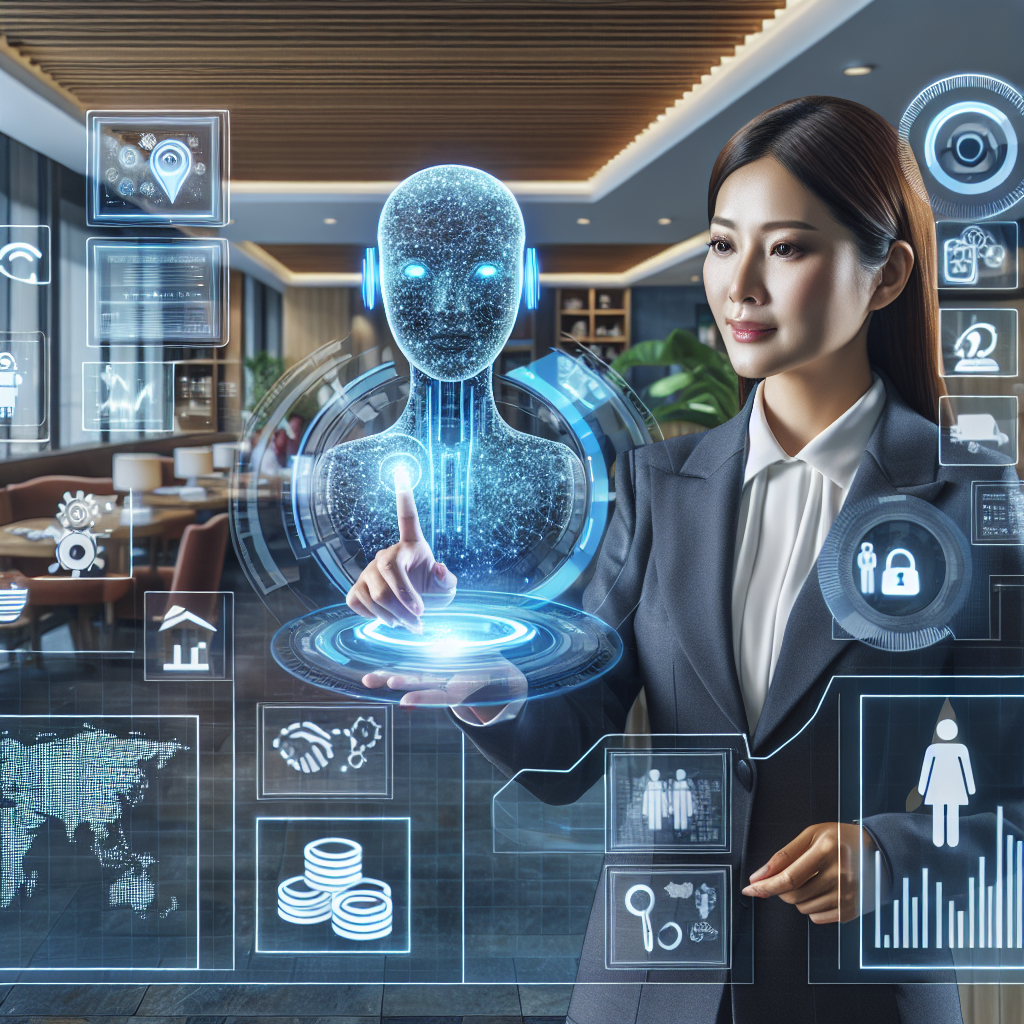In today’s fast-paced world, technology is constantly evolving and reshaping various industries. One such industry that has been greatly impacted by technological advancements is the hospitality industry. With the rise of Artificial Intelligence (AI) technology, staff training and development in hospitality have been revolutionized, providing countless benefits for both employees and businesses alike.
AI technology has the ability to enhance staff training and development in the hospitality industry in a multitude of ways. From personalized learning experiences to predictive analytics, AI has the potential to transform the way hospitality businesses approach training and development for their employees.
Personalized Learning Experiences
One of the key benefits of AI technology in staff training and development is the ability to provide personalized learning experiences for employees. AI algorithms can analyze an employee’s learning preferences, strengths, and weaknesses, and tailor training programs to suit their individual needs. This not only ensures that employees are receiving the most relevant and effective training, but also helps to increase engagement and retention.
For example, AI-powered learning platforms can track an employee’s progress and performance in real-time, providing immediate feedback and recommendations for improvement. This level of personalized support can help employees to develop their skills more efficiently and effectively, leading to a more knowledgeable and competent workforce.
Predictive Analytics
Another way in which AI technology is enhancing staff training and development in hospitality is through the use of predictive analytics. By analyzing data on employee performance, training outcomes, and business objectives, AI algorithms can predict future training needs and identify areas for improvement. This allows businesses to proactively address training gaps and ensure that employees are equipped with the skills they need to succeed.
For instance, AI-powered analytics can identify trends in employee performance, such as common areas of weakness or high-performing individuals. This information can then be used to create targeted training programs that address specific skill gaps and improve overall performance. By leveraging predictive analytics, businesses can stay ahead of the curve and ensure that their staff are continuously developing and growing.
Virtual Reality Training
AI technology is also enabling the use of virtual reality (VR) training simulations in the hospitality industry. VR training allows employees to experience real-life scenarios in a safe and controlled environment, providing them with hands-on experience and practical skills that are essential for their roles. This type of immersive training can be particularly beneficial for roles that require practical skills, such as housekeeping or food and beverage service.
For example, VR training simulations can simulate scenarios such as handling difficult guests, practicing room setup and cleaning procedures, or learning how to use new technology systems. By immersing employees in these realistic scenarios, businesses can ensure that they are fully prepared to handle any situation that may arise in their roles.
Automation of Routine Tasks
AI technology is also streamlining staff training and development by automating routine tasks and processes. By automating repetitive tasks such as scheduling, tracking training progress, and generating reports, businesses can free up time for employees to focus on more valuable and strategic activities. This not only increases efficiency and productivity but also allows employees to dedicate more time to their personal development and growth.
For instance, AI-powered training platforms can automate the process of assigning training modules, tracking completion rates, and generating performance reports for employees. This eliminates the need for manual intervention and allows businesses to streamline their training processes, saving time and resources in the long run.
Improved Employee Engagement and Retention
One of the most significant benefits of AI technology in staff training and development is the potential to improve employee engagement and retention. By providing personalized learning experiences, predictive analytics, and immersive training simulations, businesses can create a more engaging and rewarding training experience for their employees. This, in turn, can lead to higher levels of job satisfaction, motivation, and loyalty among staff members.
Furthermore, AI technology can help businesses to identify high-potential employees and provide them with targeted development opportunities. By investing in the growth and development of their top performers, businesses can increase employee retention rates and foster a culture of continuous learning and improvement.
FAQs:
Q: How can AI technology personalize learning experiences for employees in the hospitality industry?
A: AI algorithms can analyze an employee’s learning preferences, strengths, and weaknesses, and tailor training programs to suit their individual needs. This ensures that employees are receiving the most relevant and effective training, leading to increased engagement and retention.
Q: How does predictive analytics benefit staff training and development in hospitality?
A: Predictive analytics can analyze data on employee performance, training outcomes, and business objectives to predict future training needs and identify areas for improvement. This allows businesses to proactively address training gaps and ensure that employees are equipped with the skills they need to succeed.
Q: What is the role of virtual reality training in enhancing staff development in hospitality?
A: Virtual reality training allows employees to experience real-life scenarios in a safe and controlled environment, providing them with hands-on experience and practical skills that are essential for their roles. This type of immersive training can be particularly beneficial for roles that require practical skills, such as housekeeping or food and beverage service.
Q: How does AI technology automate routine tasks in staff training and development?
A: AI technology can automate repetitive tasks such as scheduling, tracking training progress, and generating reports, freeing up time for employees to focus on more valuable and strategic activities. This increases efficiency and productivity and allows employees to dedicate more time to their personal development and growth.
Q: How can AI technology improve employee engagement and retention in the hospitality industry?
A: By providing personalized learning experiences, predictive analytics, and immersive training simulations, AI technology can create a more engaging and rewarding training experience for employees. This can lead to higher levels of job satisfaction, motivation, and loyalty among staff members, ultimately improving employee retention rates.

